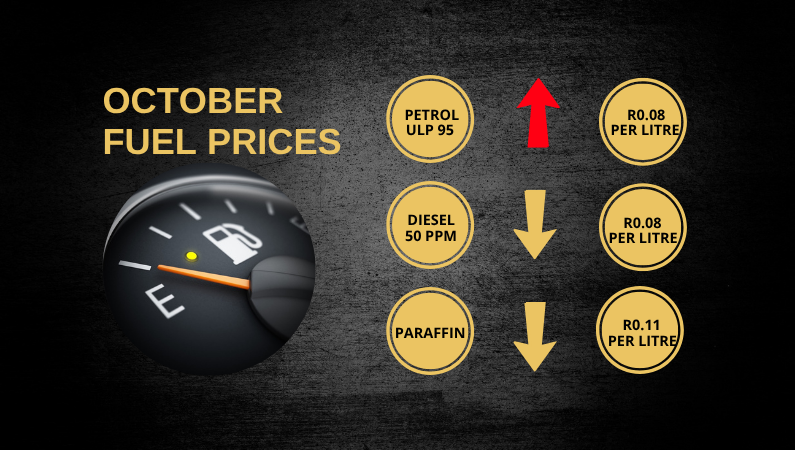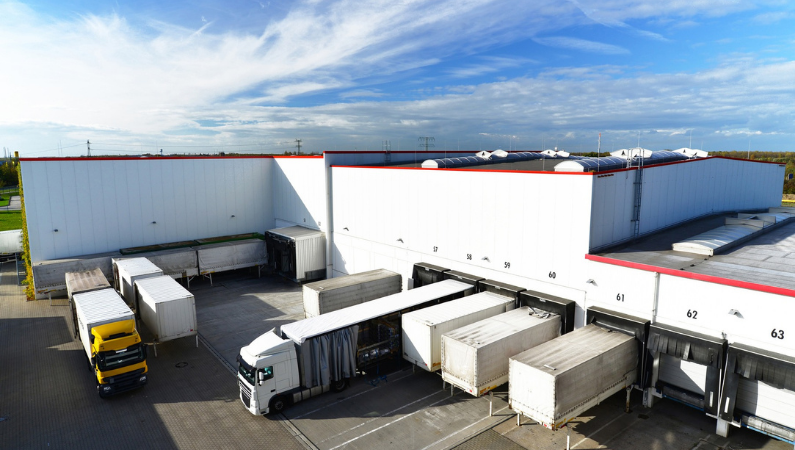Fleet Fuel Intelligence
As we head into October, South African fuel consumers face a mixed picture at the pumps. Mid-month projections from the Central Energy Fund (CEF) suggest a slight increase for petrol—between 8 and 16 cents per litre—while diesel may see a modest decrease of around 9 cents per litre. These movements reflect a combination of international oil price fluctuations and rand/dollar exchange rate dynamics.
While the rand has surprised analysts by strengthening to R17.32/$—approaching nine-month highs—economic fundamentals remain fragile, with slow growth and high unemployment continuing to challenge businesses. Globally, oil markets are experiencing tension between geopolitical pressures pushing prices up and OPEC+ supply adjustments keeping prices in check. This results in small but noticeable swings in local fuel recoveries.
For fleet operators and businesses dependent on bulk fuel, these shifts can impact monthly budgets and operational planning. At Virgin Fuels, we understand that every cent matters, which is why we focus on providing not only reliable supply but also strategic insights and flexible solutions to help our clients navigate volatile markets.
Our commitment is to keep you informed, prepared, and empowered to make decisions that protect both your bottom line and operational continuity. By monitoring trends, analysing recoveries, and partnering closely with our clients, we aim to turn uncertainty at the pumps into actionable intelligence.
Thank you for trusting Virgin Fuels as your bulk fuel partner. Let’s navigate these fluctuations together keeping your fleet moving efficiently, predictably, and profitably.

Fueling Your Business: Flexible Credit & Payment Solutions
In today’s challenging South African economy, managing cash flow is more critical than ever. Fuel remains essential to keep your fleet moving, but the way you structure supply agreements can make all the difference between pressure on working capital and financial flexibility. Virgin Fuels partners with clients to create practical, flexible solutions tailored to real-world needs.
For many businesses, strategies like ring-fenced margin agreements provide price certainty, helping to safeguard budgets from sudden spikes. Staggered payments allow you to spread fuel costs over time, aligning with your income cycles and freeing up working capital. Partial swaps or adjusted volume agreements give you room to respond to seasonal or operational shifts, while offtake arrangements ensure reliable bulk supply at pre-agreed rates, protecting your operations against market volatility.
These solutions are not limited to large fleets—Virgin Fuels designs them for businesses of all sizes. The goal is simple: maintain uninterrupted fuel supply, manage costs effectively, and keep your fleet moving efficiently.
By combining expert supply management, tailored payment options, and strategic planning, Virgin Fuels ensures fuel doesn’t just become a cost but a managed asset that supports your business growth.
Talk to Virgin Fuels today about creating a credit and payment structure that works for your unique operations.
Cutting the Hidden Energy Drains in Your Logistics Chain
Fuel costs don’t end at the pump. In South Africa’s competitive logistics sector, many businesses overlook small inefficiencies that add up to big losses. These “hidden costs” silently drain budgets—but the good news is, they can be trimmed with the right strategy.
Where energy losses hide:
• Idling losses: A truck idling for an hour burns 2–3 litres of diesel. Multiply that across a fleet, and the numbers climb fast.
• Tank routing inefficiencies: Extra kilometres from poorly optimised fuel supply routes can eat 5–10% of your budget.
• Auxiliary fuel use: Refrigerated trailers and gensets consume far more diesel than many operators account for, especially in peak summer months.
• Fuel theft & losses: From small siphoning to delivery shrinkage, unmonitored tanks are prime targets for hidden losses.
Smart strategies to trim the fat:
• Deploy telematics and route optimisation to cut wasted kilometres and engine idling.
• Schedule refuels smartly—fewer detours, more centralised bulk supply.
• Track auxiliary consumption separately so you can plan and cost correctly.
• Invest in tank monitoring and secure dispensing systems to prevent theft and leakage.
Every hidden litre saved strengthens your bottom line. With Virgin Fuels’ bulk delivery, tank solutions and monitoring support, you can shine a light on these unseen costs—and turn them into efficiency gains.

Diesel or Petrol? Why Diesel Can Still Be the Smarter Choice for Mixed Fleets in South Africa
In today’s shifting fuel market, fleet managers are constantly balancing the cost equation between diesel and petrol. While many fleets are mixed for operational flexibility, there are scenarios where diesel quietly wins out—even beyond heavy-duty transport.
When diesel shines under South African conditions:
• Fuel price movements: In October 2025, diesel remains more competitively priced per litre than petrol when adjusted for energy output. A typical light delivery vehicle running 3,000 km per month can save up to R600–R1,200 monthly on diesel compared to petrol, depending on consumption.
• Tax regimes: Diesel is free of the General Fuel Levy (GFL) applied to petrol, which keeps its base price more stable. Over a year, that stability can add predictability to operating budgets.
• Engine technology: Modern diesel engines are no longer noisy or sluggish. With turbocharged tech, they deliver strong torque at lower RPM—ideal for stop-start urban deliveries or long-haul trucking. Lower revs mean less wear and better efficiency.
• Resale value: Diesel bakkies and vans typically hold value longer in the South African second-hand market, lowering lifecycle costs for mixed fleets.
Worked example under current conditions:
A 1-tonne petrol bakkie averaging 10 km/l at R24.50/l costs about R7,350 monthly to fuel at 3,000 km. A diesel equivalent averaging 12 km/l at R23.20/l costs about R5,800 monthly—a saving of R1,550 per vehicle. Scale that across 20 vehicles, and the difference is R31,000 per month.
The takeaway: Even in a mixed fleet, assigning diesel vehicles to high-mileage, load-bearing or resale-sensitive roles can significantly cut operating costs. Petrol still has a place—but in today’s South African market, diesel often gives the edge.

How Currency Fluctuations Influence Fuel Costs – A Simple Guide for Businesses
Fuel prices don’t just depend on supply and demand – they’re also heavily influenced by currency fluctuations. For South African businesses, understanding this connection is key to managing budgets and planning effectively. At Virgin Fuels, we aim to simplify this complex issue so you can make informed decisions.
Most crude oil is traded globally in US dollars. This means that when the rand weakens against the dollar, it costs more to import the same amount of fuel – even if global oil prices remain stable. Conversely, when the rand strengthens, import costs decrease, often resulting in lower fuel prices locally.
For businesses in logistics, mining, manufacturing, and agriculture, these shifts can significantly impact operating costs. A sudden weakening of the rand can raise fuel expenses almost overnight, putting pressure on cash flow and margins.
So, what can businesses do?
• Monitor exchange rates: Keeping an eye on currency trends can help anticipate changes in fuel costs.
• Improve fuel efficiency: Reducing consumption through better driving practices and fleet maintenance helps cushion the impact of price increases.
• Work with reliable suppliers: Partnering with a trusted bulk fuel supplier like Virgin Fuels ensures transparent pricing and dependable service, giving you confidence even in volatile times.
• Plan ahead: Where possible, align budgets with expected fuel price movements to avoid unexpected shocks.
While businesses can’t control exchange rates, they can control how they respond. At Virgin Fuels, we provide more than fuel – we provide the insights and reliability you need to manage uncertainty with confidence.

